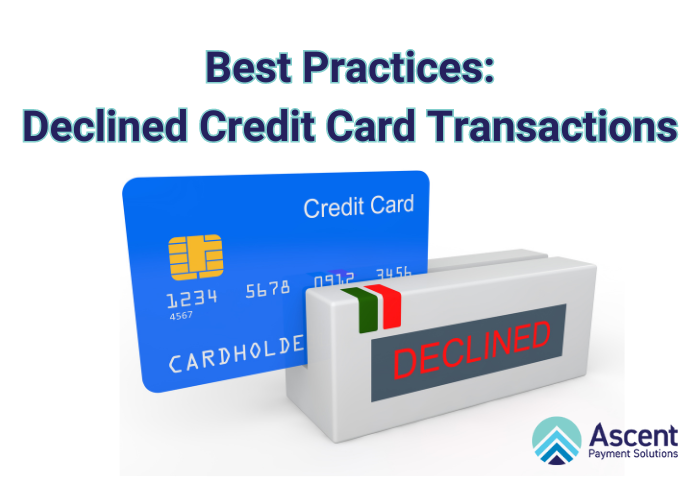
Declined Card Transactions - Merchant Best Practices
ChargebacksPayment ProcessingGeneralFraud Prevention
Managing Card Declines: Ensuring Smooth Payment Processing for Merchants
When your business embraces credit and debit card payments, it's important to understand that occasionally, the card issuer may decline an attempted authorization. This can happen for a variety of reasons, including but not limited to:
- Insufficient Funds
- Suspected Fraud
- Data Mismatch (e.g., AVS or CVV data not matching, leading to a decline)
- Invalid or Expired Card
- Transaction Not Permitted
To handle these declines efficiently, and to reduce the risk of encountering false authorizations triggered by multiple attempts in a short time frame, you need to follow some merchant best practices.
Implementing these guidelines will not only enhance the security of your payment processing but also lower the chances of receiving chargebacks for sales made on cards that previously declined.
Additionally, by adhering to these practices, you can avoid unnecessary fees, as card brands often impose extra charges for excessive authorization attempts.
Let's explore these best practices in detail:
1. Charge in Full: When processing a card payment, always charge the full amount owed. Splitting a charge into smaller amounts on the same card might increase the risk of payment delays or non-receipt.
2. Prompt Communication: In the event of a card decline, immediately notify the cardholder and request them to contact their issuing bank to address any issues that may have caused the decline. Only attempt the card a second time if the cardholder confirms that all issues with their credit card issuer have been resolved.
3. Limited Attempts: Do not make multiple attempts on the same card. If a card declines more than twice in a single day, consider requesting an alternative form of payment from the customer or waiting for 24 hours. If, after 24 hours, the card still declines, it is advisable to ask for a different payment method.
By following these best practices, you can streamline your card payment processing, reduce the risk of chargebacks, and keep unnecessary fees at bay. This ensures a smoother and more secure transaction experience for both you and your customers.
Categories
Share This Content